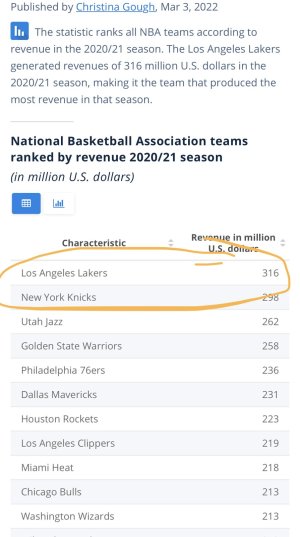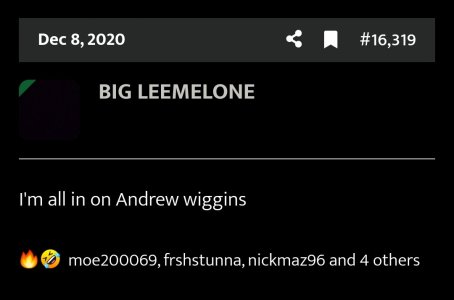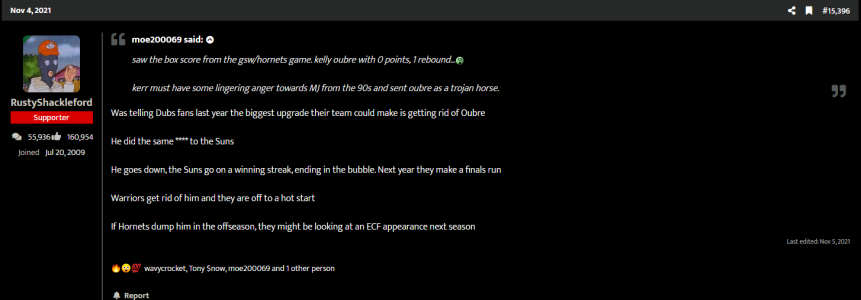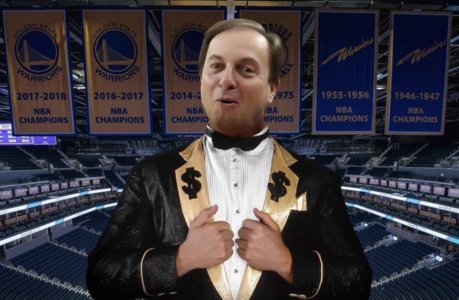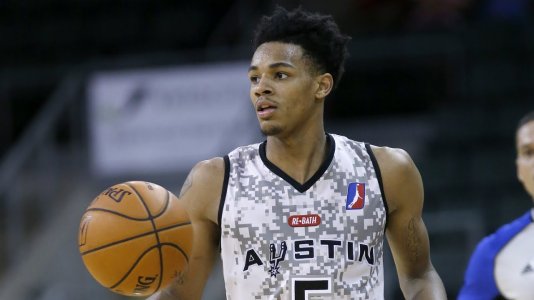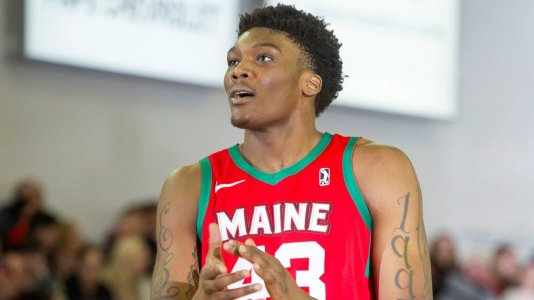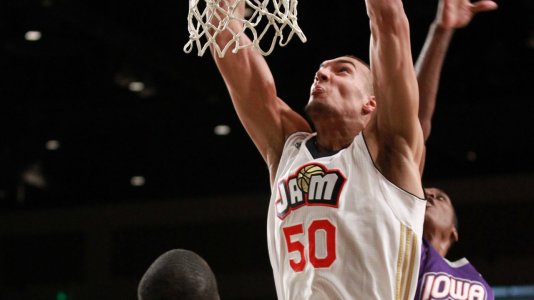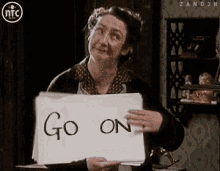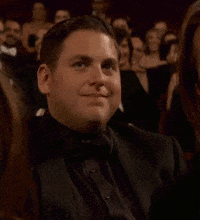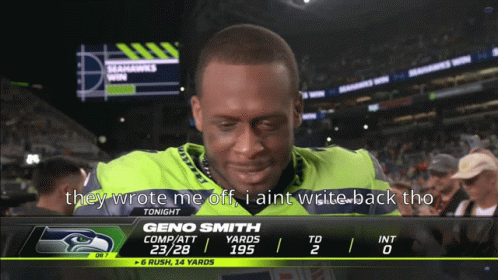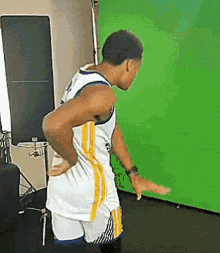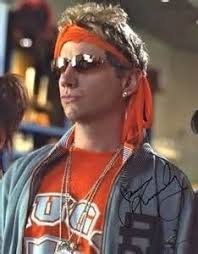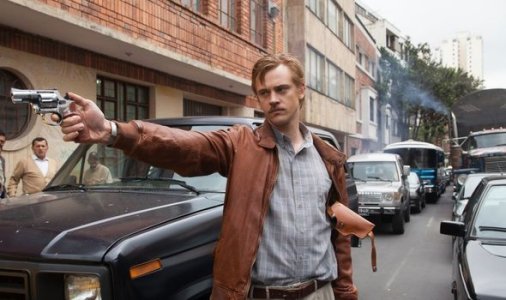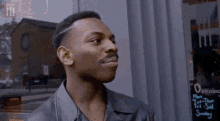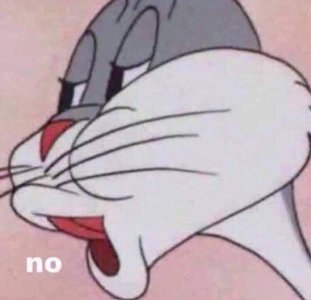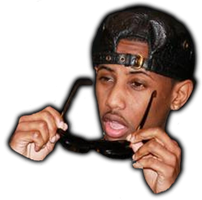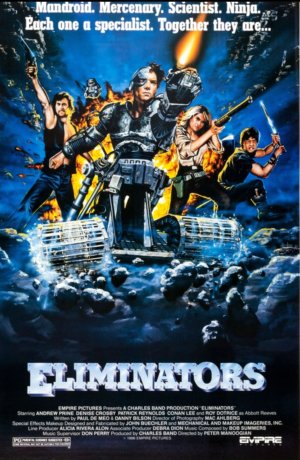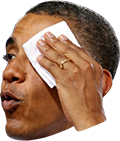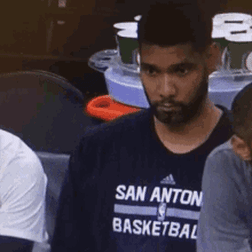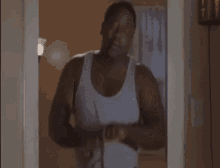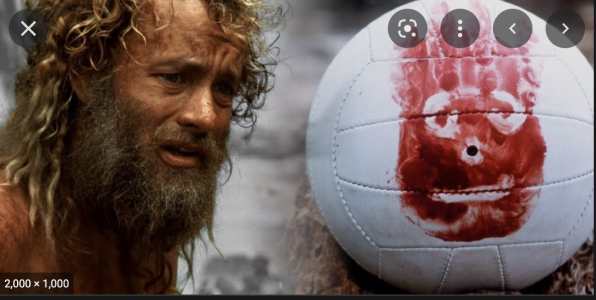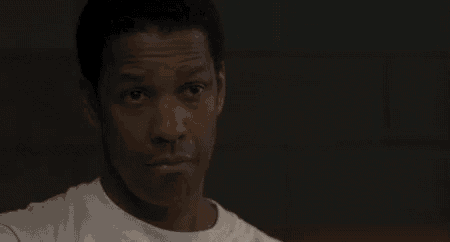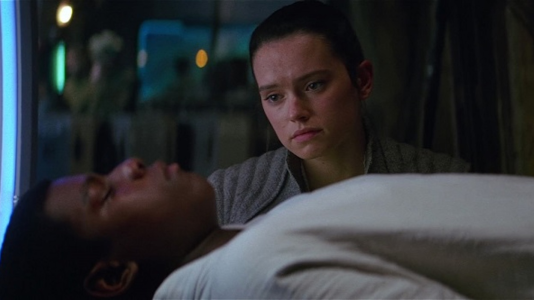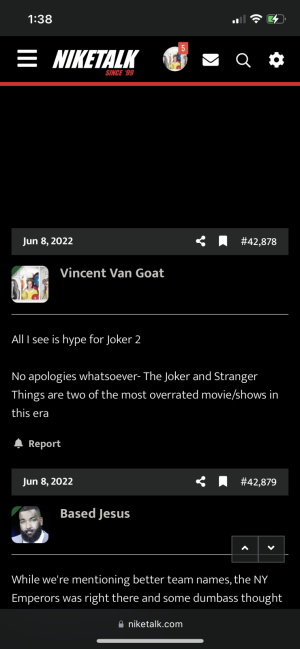Shabazz Muhammad’s winding path back to an NBA chance: ‘I’ve been humbled’
Shabazz Muhammad has just finished another workout. He feels good. He is confident in his game and secure in his mind. His body is strong and fit. He is ready for his shot at the NBA. He is 29 years old.
This is not how it was supposed to happen. Muhammad was not meant to be off in a Las Vegas gym working out on his own, hoping to convince an NBA team that he would be a valuable veteran addition to a locker room. Shabazz Muhammad was not meant to convince anyone of anything.
He was self-evident. The “once-in-a-generation talent’’ made varsity as a high school freshman, earned McDonald’s All-America honors, and 10 years ago arrived at UCLA as the top-ranked player (tied with Nerlens Noel) in his class, a sure-thing, can’t-miss NBA prospect. He wound up selected 14th, lower than expected but still a lottery pick, his rights traded on draft night 2013 to Minnesota. “I thought,’’ his college coach, Ben Howland, says, “he’d be a 10-year pro.’’
Instead Muhammad hasn’t stepped foot on an NBA court since 2018, and last year played for a team called the San Miguel Beermen in the Philipines. It is not, contrary to its name, a beer league team but the Philippines Basketball Association is not the EuroLeague, either. The Beermen bowed out in the quarterfinals. “Humbled,’’ Muhammad said recently, chatting by phone after a workout. “I’ve definitely been humbled.’’
It would be easy to tag Muhammad as a cautionary tale, to make his story a don’t-do-what-I-did manifesto. Except that is neither how he portrays himself nor how he feels about his life a decade after having signed with UCLA. Yes, there are things he wishes he had done differently, decisions he’d like a do-over for, but a life riddled with regret? No, that’s not Muhammad at all.
If anything, he considers his detour — and to him, it is only that, because he has every intention of rejoining the NBA highway — a reality check. Ten years later everything and nothing has changed. College players now have name, image and likeness money and the freedom to transfer, but the endgame remains the same — to get to the NBA. Muhammad watches them from afar, well aware that they are no different than he was at their age, cocksure that their path will be simple and straight and not likely to listen to what an oldhead might want to say, anyway. He sees them bounce around via the portal and wonders if constantly chasing immediate gratification will only underscore the simple lesson he didn’t fully appreciate. “One thing I’ve learned — nothing comes easy,’’ he says. “If it was, everyone would be doing it. You have to learn how to deal with things when they don’t go your way. You should be grateful when you get to the NBA, but you can’t stop when you get there. That’s when the work starts. It’s hard to get there. It’s harder to stay.’’
So how does a can’t-miss player miss? It’s often — and in Muhammad’s case — little things. Not a major transgression, but a combination of immaturity, a total lack of self-awareness and way too much self-entitlement. It’s easy to mush that all together and simply call it arrogance, and no doubt there is some hubris involved.
The NBA never dangled in front of Muhammad like some tantalizing carrot, or teased like an impossible dream. It felt preordained, his destiny — even though such a thing can never be preordained or destined. His father, Ronald Holmes, admitted that he practically groomed his middle son for a pro career. A former player at USC, Holmes told the Los Angeles Times in 2013 that when he met his future wife, Faye Paige, a point guard and track athlete at Long Beach State, he told a friend, ‘We’re going to make some All-Americans.’
To his credit, they did just that, which is no simple thing. Holmes was no pushover. Whatever natural gifts his son might have, Holmes wanted them coated with hard work. “He told me, ‘I want you to coach his *** up. I want you to MF him,’’ Howland says. “If you weren’t yelling and screaming at him, he was disappointed. He held his kid accountable. No excuses.’’ But there is a risk in building a brand while simultaneously raising a child, and though the suitors came calling early — hometown UNLV offered Muhammad at the end of his freshman year — so, too, did the hangers on.
By the time he started taking official visits, Muhammad already was in the crosshairs of the NCAA, investigators issuing preemptive strikes to coaches, warning them that the star player who had, by his senior year, rose to the top of the rankings, could very well be ineligible to play. “There was a lot of scrutiny,’’ Howland says. “He was red flagged.’’ The NCAA questioned the involvement of Ken Kavanagh, a New York-based financial planner who helped fund Muhammad’s grassroots team, and Benjamin Lincoln, the North Carolina-based brother of Muhammad’s high school assistant coach, who helped pay Muhammad’s way to official visits at Duke and North Carolina.
UCLA took him anyway. The Bruins were five years removed from their latest Final Four and reopening a spritzed up Pauley Pavilion. A top recruiting class not only could cure what ailed UCLA but also fill the seats. The whole thing ultimately devolved into a fiasco, the NCAA suspending Muhammad before the season opener, only to double back a week later after a lawyer told the Los Angeles Times that the boyfriend of the lead investigator was bragging that his girlfriend long knew Muhammad was ‘dirty.’ The official party line from Indianapolis was that Muhammad repaid the $1,600 in travel expenses and that the three games missed was the appropriate time served for such an infraction. But the NCAA also fired the lead investigator, and plenty of people — some sporting ‘Free Shabazz’ T-shirts — saw the whole thing as a clear case of the national governing body prejudging a kid.
Either way, it added to the allure of Muhammad, and no doubt upped the expectations on him. Would he, people naturally asked, be worth all of the trouble? He was hardly the first and is hardly the last player to come to college saddled with such baggage. Before him Derrick Rose came to school dogged by questions about his SAT score; after him, Zion Williamson, James Wiseman and Emoni Bates faced their own NCAA scrutiny. “All the outsiders come at you, and I would tell younger guys coming up, stay the course,’’ he says. “Stay with people you trust. A lot of people are going to try and distract you.’’
(NIL, of course, is meant to eliminate all of that, put the cards on the table and give the players the money on the up and up. Muhammad can’t help but wonder how things might have been different for him; not just what opportunities he might have been given but if people might have viewed him differently, as less of a scofflaw. “Give guys the chance to get paid, I like that deal,’’ he says. “I probably wouldn’t have missed any games, or anything like that.’’)
By his own standards, Muhammad delivered at UCLA. He averaged 17.9 points, failing to score in double figures just once. The Bruins won the Pac-12 regular-season crown, Muhammad scoring 14 of his team-high 21 points during a second-half rally against Washington. But in the first round of the NCAA Tournament, he missed his first eight shots and all six of his 3-pointers, as the Bruins were routed by 20 by Minnesota. Fans pinning their hopes on Muhammad restoring UCLA prominence differed in opinion, some viewing his lone season as an epic flameout.
Though Howland took the brunt of the blame for the disappointing season — he was fired days after that loss to the Gophers — plenty pointed at Muhammad, also. He was deemed too selfish — he memorably pouted after Larry Drew took and made a game-winner instead of passing to Muhammad against Washington, and had just 27 assists in 32 games — all of that extra baggage not helping to burnish his reputation.
The NBA, frankly, rarely cares about NCAA investigations, but the lousy assist numbers did make some scouts question where a 6-6 college small forward who didn’t like to pass the ball and was only occasionally committed to defense could play (he allowed .816 points per possession, according to Synergy Sports) at their level. Muhammad wound up selected in that 14th spot, a precipitous drop from his predicted position at the start of the season, but still a lottery pick, with a legit chance to not just make — but compete for — a team.
Fans in Minnesota, whose Timberwolves traded for Muhammad’s rights on draft day, were skeptical, worried that he was a prima donna and not, in fact, worth the trouble. Muhammad didn’t exactly endear himself to them or to coach Flip Saunders when, during the NBA’s four-day rookie symposium, he was sent home. Within hours of being told the 50 players had to abide by a strict no guest policy, Muhammad brought a woman to his room.
Muhammad, though, went into his rookie season convinced he could do what he had always done — find a starring role, make an immediate impact. “From the time I was younger, I always believed I was one of the best players to play,’’ he says. “What I didn’t consider is that all the other guys thought the same thing.’’ All told, he appeared in 37 games as a rookie, spent time in the G League and averaged 3.9 points per game before an MCL injury ended his season in April. Still, Muhammad was hardly deterred. He still believed in his talent, still saw himself doing exactly what he was meant to do; namely, star in the NBA.
He asked out. That’s the pivot point, the one moment in his career when Muhammad steps back and thinks, ‘what if?’ Even allows himself a momentary taste of regret. At the time it made sense to him. He was 24, in his prime. The previous two years with the Timberwolves, he’d found his stride. Lost some weight, grabbed some decent playing time and produced — 13.5 points in his second year (until finger surgery shelved him), 10.5 in his third, playing in all 82 games that year.
But the Timberwolves, collectively, were in disarray. Tom Thibodeau, who served as both coach and president of basketball operations, was already Muhammad’s fourth NBA coach and third front-office decision-maker.
Thibodeau had a reputation as a defense-first coach — still not Muhammad’s strong suit — but the player sought out his new coach during the summer league prior to the 2016-17 season, anxious to pick his brain and figure out how he could fit in. It worked well enough that season, Muhammad still contributing 9.9 points per game. He signed a two-year deal at the end of that year, with a player option. But the following season, after the Timberwolves added Jimmy Butler to the equation, Muhammad’s minutes waned.
By the middle of Thibodeau’s second season, 2017-18, Muhammad was out of the rotation entirely, averaging just 3.8 points per game. In February of that season, he asked to be traded or released and the following month, Minnesota agreed to buy out the rest of his contract. Milwaukee picked him up, but he played in just 11 more games that season. “I was immature,’’ he says. “I should have just played it out. It’s a long season, but young guys are impatient. I had a player option. I ride that out, maybe I’m still in the NBA.’’ Instead on Oct. 8, 2018, in a preseason loss to Golden State while trying to stick with Milwaukee, Muhammad appeared in his final NBA game.
He did not know that then, of course. He didn’t even quite grasp how it all unspooled. He blamed everyone else, not himself. He can look back on it now, see the mistakes. See how he got annoyed when he didn’t play, instead of getting back to work. Understand how his offensive skills, no matter how strong, weren’t enough to make up for his lack of defensive savvy. (Even in 2014-15, his best year as a pro, he allowed .942 points per possession per Synergy Sports, ranking him 440th out of 549 NBA players.) But then he figured he’d just keep doing what he was doing and he’d find his way back to a team.
Instead he wound up in Taiyuan, in the Shanxi province of northern China. Two years earlier, he’d toured Taiwan for a pair of exhibition games with the T-Wolves. This was not that. The city is plagued by air pollution, and his team, the Shanxi Brave Dragons, were known more for bringing in big names (Stephon Marbury played there in 2010) than winning games.
“It was a big adjustment,’’ Muhammad says. “The language barrier — I needed a translator to talk to my teammates — the food. I got down on myself.’’
He returned to China the following year but with a different team — the Shenzhen Aviators. COVID shut him out for all of 2020 and he admits he got out of shape. The closest he’s been to the NBA since that game against Golden State was in December 2021, when he spent three days with the Grand Rapids Gold, the Nuggets G League team, in the Vegas G League Showcase. With teams looking for safety nets due to COVID testing, Muhammad thought maybe he’d get a chance. He didn’t. Instead he went to the Philippines.
And now he is here, on the outside looking in. As hard as it may be to stay in the NBA, it’s even harder to get back in once you’re gone. No one is just playing a game; they are maintaining a livelihood. The guys who have the spots aren’t likely to give them up — Muhammad’s grievous mistake — and countless others, either more experienced than Muhammad or younger, taller, shorter, faster and stronger, are vying for the pittance of roster positions that do become available.
For the player whose future everyone thought was preordained, there are, 10 years later, no guarantees. The Sacramento Kings have invited him in for a Vegas workout; they’re in need of a wing. The Mavericks, he says, have made some overtures. He hopes they see his commitment to his body (“He looks great,’’ Howland says. “He really got his body right.’’ ), his footwork, his offense.
But Muhammad believes his greatest asset isn’t going to show up on a court. It’s his story and his circuitous path. His experiences, and the humility gained by them, have taught him how to be a better teammate and even more, the value of being a good teammate. By just being in a locker room, he can help younger players. Let them see his appreciation for a second chance, how hard he’s worked and how far he’s traveled just to make it back. Maybe then they’ll understand what he didn’t all those years ago, that there is a difference between merely arriving and succeeding, and that there is no such thing as can’t miss.
 Come on, man.
Come on, man.  , would be a loss giving him up for Donovan imo.
, would be a loss giving him up for Donovan imo. 




